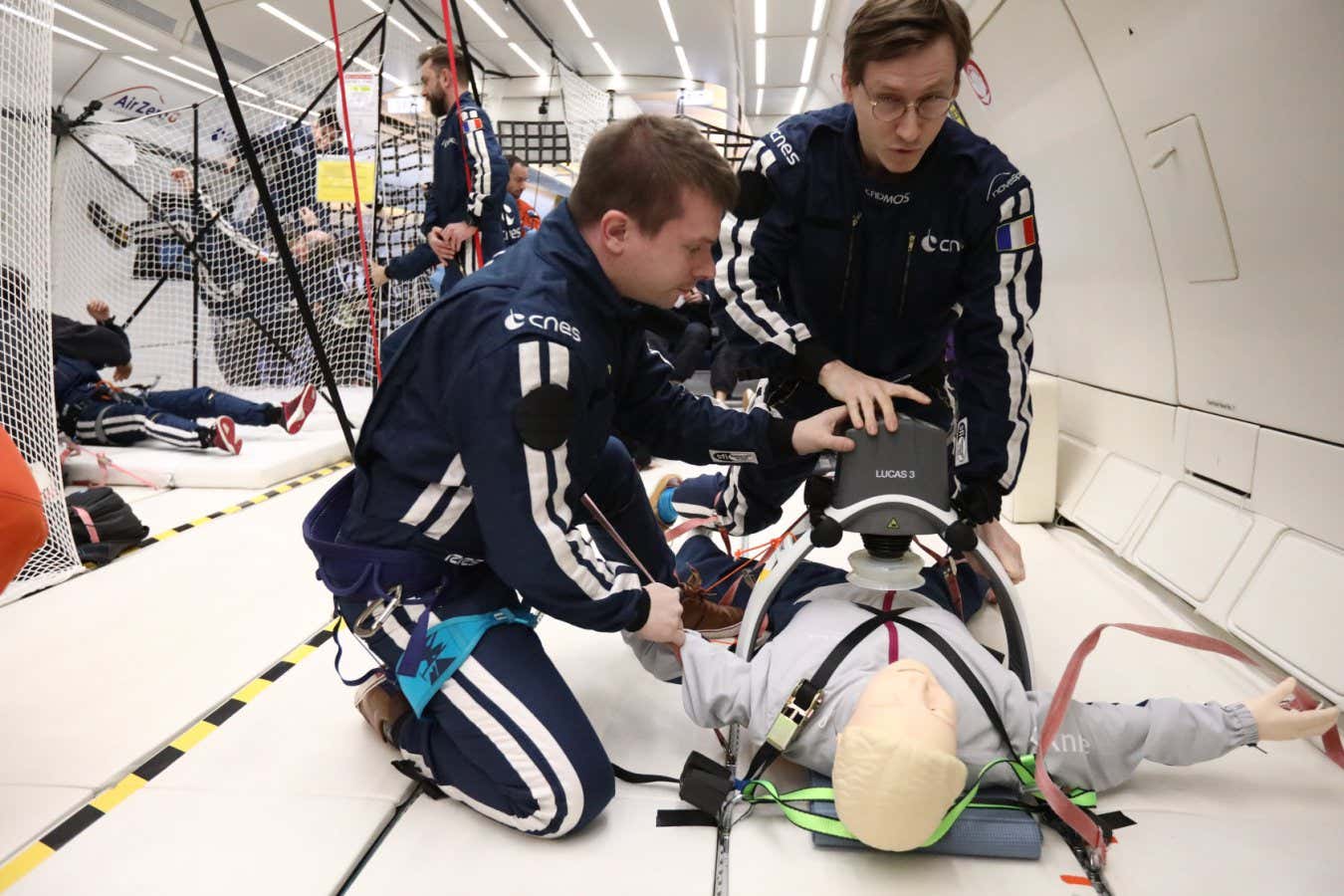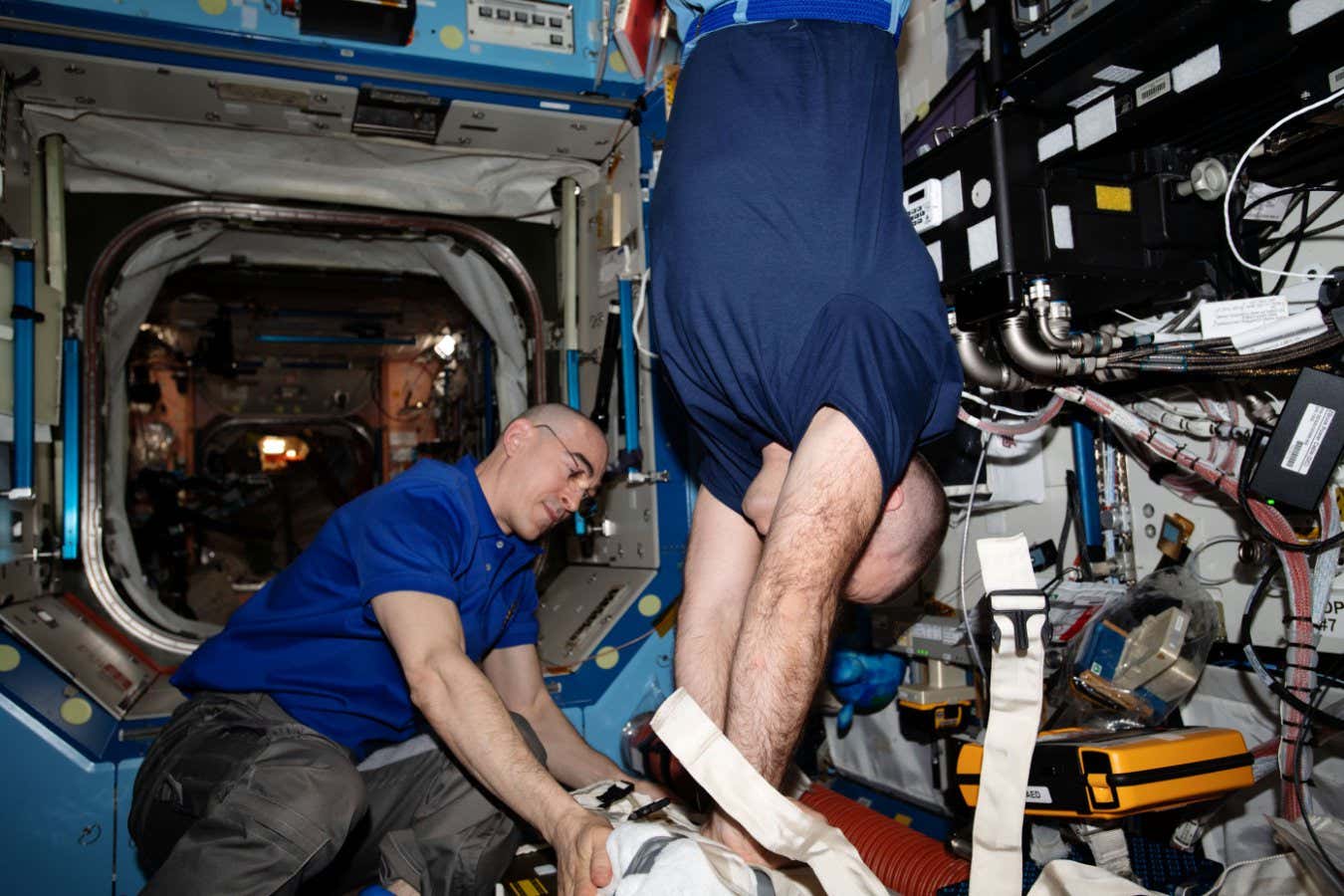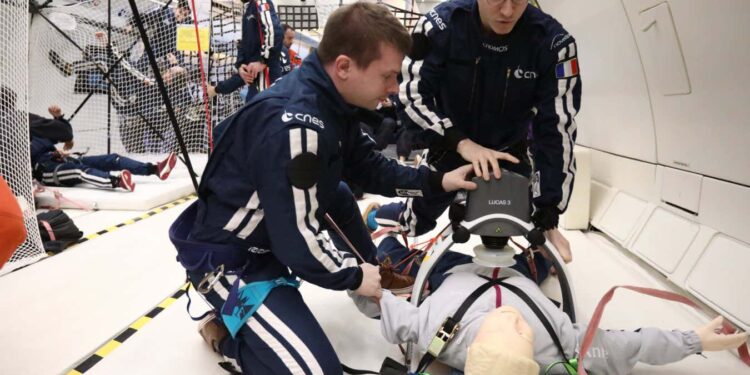
Researchers test a chest compression machine on a dummy in an aeroplane
CNES
Microgravity makes it tricky to do simple tasks like eating, using the toilet and showering, so it is no wonder that performing CPR on someone whose heart stops beating in space is an extremely demanding procedure. But a mechanical device could do the job more effectively, tests carried out in simulated microgravity suggest.
On Earth, one’s weight and strength are used to compress the patient’s chest. But in space, things are different, as weight becomes virtually meaningless.
NASA’s CPR protocol for the International Space Station demands that you wedge yourself and the patient between two hard surfaces, do a handstand on their chest and push with your legs to provide compression.
In search of a better way, Nathan Reynette at the University of Lorraine in France and his colleagues tested various CPR methods in an Airbus A310 aeroplane flying parabolic curves, a manoeuvre that creates 22 seconds of microgravity. They also tested three different chest compression machines that are commonly used in cramped environments on Earth, such as in the back of air ambulance helicopters.
All the methods were applied to a training dummy and the depths of chest compression achieved were carefully monitored. The European Resuscitation Council says a depth of at least 50 millimetres is necessary to be effective: in the tests, the best mechanical device achieved 53 millimetres, but the handstand method only achieved 34.5 millimetres.
The research will be presented at the European Society of Cardiology Congress in Madrid on 31 August. Reynette and his colleagues said in a press release that they hope their findings will influence future guidelines on CPR in space.

Astronauts practise chest compression techniques during an emergency training session aboard the International Space Station
JSC/NASA
Aaron Parkhurst at University College London says the current method for CPR in space is difficult to perform and ripe for improvement. “If you were doing this in zero gravity or in a space station for some reason, things have probably gone very wrong and the prognosis is probably not great,” he says. “This new method seems to address that.”
As space travel becomes more common and astronauts aren’t all highly selected and extremely fit people, the likelihood of cardiac incidents in orbit will grow larger, says Parkhurst. “Leaving Earth’s atmosphere, just the stress of those moments in the rocket, is extremely hard on the heart. And living long-term in space is extremely hard on cardiovascular systems. So it’s bound to happen,” he says.
A NASA spokesperson said in a statement: “Manual compressions remain the current CPR procedure aboard the International Space Station. NASA mitigates the risk of needing CPR through extensive medical screening of astronauts and robust engineering safeguards. NASA has not conducted dedicated studies on the use of CPR machines in microgravity; however, our medical team closely follows all emerging research and findings and will continue to do so as the agency prepares for future human exploration missions to the Moon, Mars, and beyond.”
Topics:
- The heart/
- space exploration
Source link : https://www.newscientist.com/article/2493803-cpr-in-space-could-be-made-easier-by-chest-compression-machines/?utm_campaign=RSS%7CNSNS&utm_source=NSNS&utm_medium=RSS&utm_content=home
Author :
Publish date : 2025-08-27 07:00:00
Copyright for syndicated content belongs to the linked Source.





